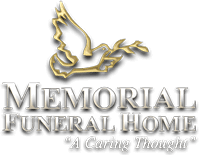Resources
Eulogies & Obituaries
How to Write A Eulogy
Writing a eulogy is different than writing an obituary. Obituaries are generally only a paragraph or two, while a eulogy is a written speech that is delivered at the funeral service. In the days following the death of a loved one, you may find yourself having to write both. Here are some helpful tips that will make writing a eulogy a little easier.
Keep your eulogy brief
Having a speech that is short will make it less likely for you to start rambling or get emotional while talking about your loved one.
Make the eulogy personal
Don’t regurgitate the information found in the obituary and recite a list of facts about your loved one. A eulogy is the time to share a story about them that illustrates something they enjoyed doing and explains the type of person they were. Important information to include are major events in the deceased’s life, their relationship with family and friends, achievements or things they cared most about.
Keep the eulogy positive
Family and friends are already struggling with grief from losing their loved one so the eulogy isn’t the time to bring up negative thoughts and feelings. Everyone can find the words to say that focus on the positives in life.
Use a conversational tone
Most people don’t have trouble talking with their family and friends. When delivering a eulogy, speak with a conversational tone to make the story more interesting for the listeners. While speaking, make sure you look up and make eye contact with the audience.
How to Write an Obituary
There are many decisions that a family has to make following the death of a loved one. The tasks can often be very overwhelming and challenging for many. One of those many details that has to be attended to is the writing of the obituary. If you have recently lost a loved one and you don’t know where to start, here are some tips to guide you in the process.
Include personal information
All of this information doesn’t have to be included, but is a good beginning to writing a complete obituary.
- Name
- Date of death
- Age of deceased
- Location of death
- Birthdate
- Parents’ names
- Education
- Marriage/children information
- Accomplishments
- Work history
General overview of the family
Every family member doesn’t have to be listed by name, but you may want to include, both deceased and living, the names of:
- Parents
- Spouses
- Children
- Siblings
- Grandparents
- Grandchildren
- Nieces
- Nephews
- Special friends, caretakers
Specific details about the funeral
- Date
- Time
- Location
- Officiant
- Donations
- Flowers
- Condolences

